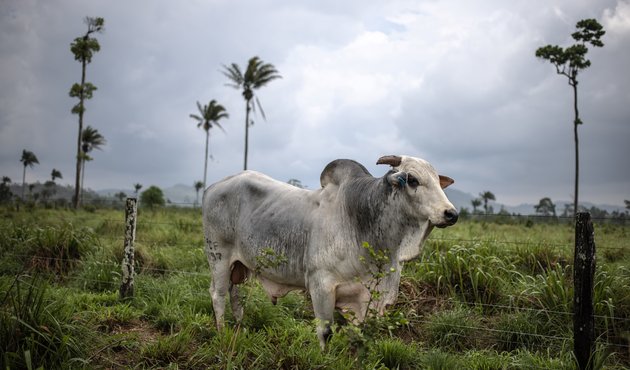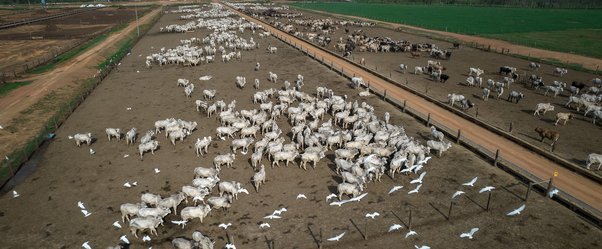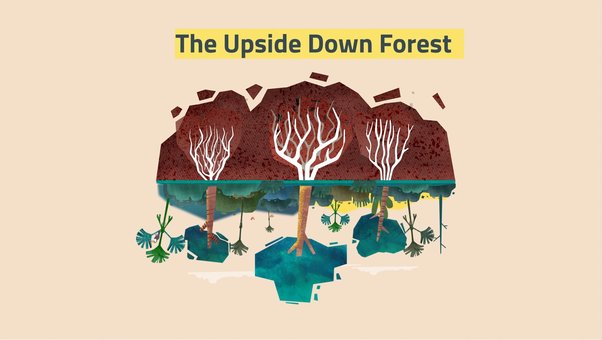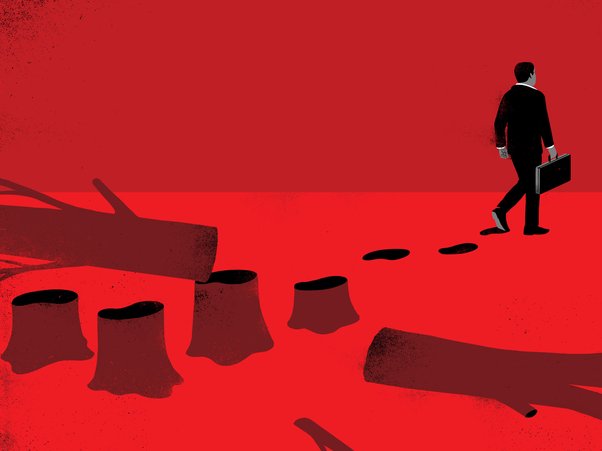More than 400 hectares of forest were destroyed last year on farms belonging to JBS’ indirect suppliers – equal to over a football field lost every day in Pará alone
The priority of agricultural and meatpacking companies, like the world’s largest meat company JBS, is to source as much produce as they possibly can. Deforestation often occurs as land is cleared for cattle grazing.
New technology developed by Global Witness, which draws on satellite and other data, shows that in their rush for beef, such companies have no excuse for ignoring deforestation in their indirect supply chains.
JBS's slaughtering capacity in Brazil is vast, with a combined slaughtering capacity of over 70,000 heads a day for beef and leather.
Large meatpacking companies such as JBS often have vast and complicated supply chains to make this happen, involving both direct suppliers (farms who supply JBS directly) and indirect suppliers (farms who supply its suppliers).
The issue of deforestation within indirect supply chains is considerable. An analysis by Chain Reaction Research suggested that the deforestation footprint of JBS’s indirect suppliers alone may have reached 1.5 million hectares over the last 15 years – the size of Northern Ireland.
The same study showed that deforestation in the company’s indirect supply chain was over seven times higher than for its direct suppliers.
Since 2020, Global Witness has raised the issue of deforestation in JBS’s supply chain with the company. At the time, JBS said it was impossible to trace all its indirect suppliers – but it aimed to do so by 2025.
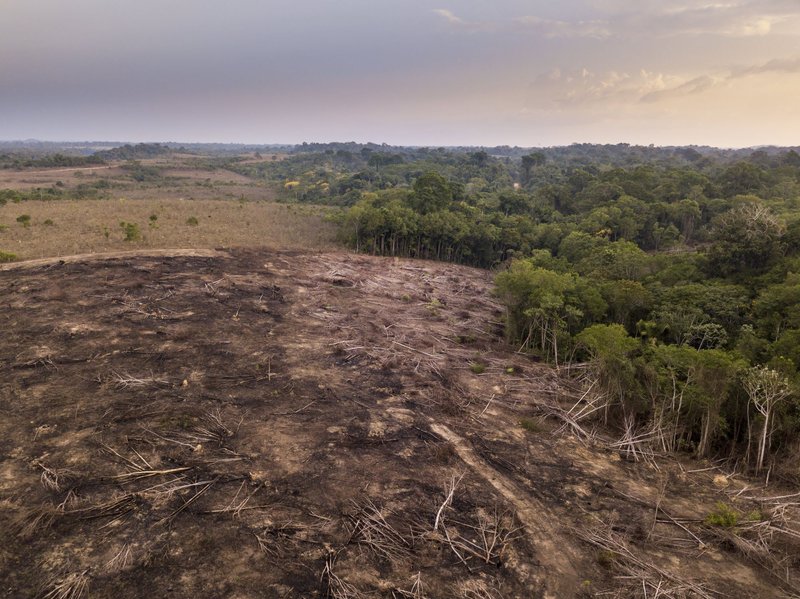
Beef Bot: A new deforestation data tool
But Global Witness has proven that it is in fact possible right now. Not only that, but it’s been tracking JBS’ indirect suppliers for the last year.
In April 2023, Global Witness launched a world first tool: an automated “bot” that draws from a unique database to alert JBS to deforestation taking place on its indirect suppliers’ land within the state of Pará, the heart of the Brazilian Amazon.
The bot uses scraped data from publicly available cattle transport permits to identify cattle farms that have sold cows to JBS’ direct suppliers.
When a deforestation alert from the MapBiomas database overlapped with the farms, Global Witness received an alert. We then analysed the data and, if it met our criteria, it was published on the X (formerly Twitter) bot.
Our small data team was able to set up this bot in a few months in 2023. JBS, the largest meat company in the world and with a market capitalisation of $12 billion at the time of writing, has the resources to do it too.
Our beef bot may have provided JBS with some inspiration: in July 2024 the company rolled out "Cowbot app" which allows registered users to check the compliance of their suppliers with socio-environmental criteria. It does not, however, appear to directly link up with data indicating deforestation events.
Mapping deforestation on meat farms
Over the past year, our “Brazil Big Beef Watch” identified 24 deforestation events in JBS’ supply chain across the state, and published a proportion of these alerts on X, formerly Twitter.
In total, the bot found that more than 400 hectares of forest were destroyed last year within Pará farms belonging to JBS’ indirect suppliers. This is equivalent to more than a football field of forest lost every single day to make space for cattle.
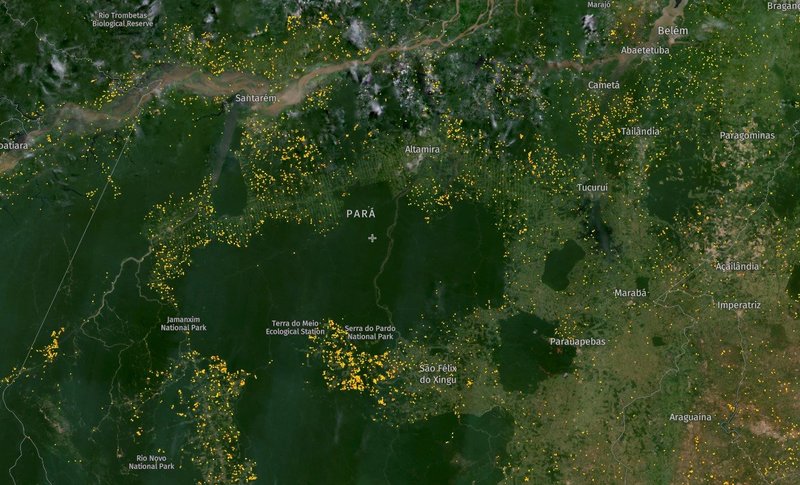
Most deforestation events recorded correspond to what has been named “fire season” in the Amazon, during the drier months of July to November.
According to the organisation Amazon Frontlines, the majority of these fires are started deliberately to clear forest for pasture.
Tracing deforestation back to JBS suppliers
The Beef Bot picked up some significant deforestation events, including two clearances at one large cattle farm last year, the first in October 2023 and the second two months after in November.
The Global Forest Watch platform’s VIIRS fire alert system detected multiple fire alerts within the farm’s boundaries in November. The events totalled 74 hectares of deforestation. The farm has sold at least 83 cattle directly to JBS since 2020.
The VIIRS dataset located apparent burning at another farm where over 100 hectares of deforestation had occurred in 2022.
According to the database of Brazil’s protected areas, the farm sits well within environmental protection area Triunfo de Xingu, a sustainable development reserve.
The area was reportedly created to preserve vegetation and provide a buffer to the nearby Apyterewa Indigenous Territory and the Terra do Meio Ecological Station.
This farm sold at least 665 cattle to JBS’ suppliers since 2018.
Media outlets such as Global Witness’ partner, Reporter Brasil, have linked JBS to deforestation on other farms within this protected area.
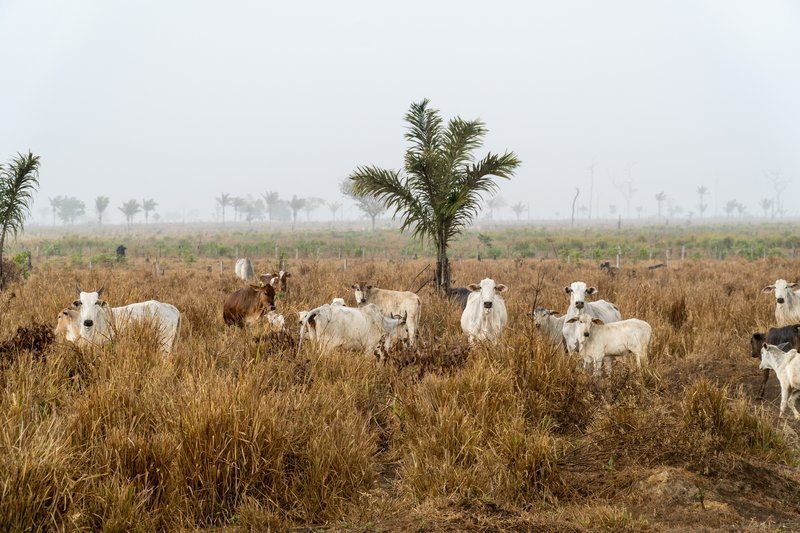
Preserving forests’ future with deforestation data
While it will no longer be available to the public, the bot’s underlying technology will continue to supply Global Witness with data on deforestation in Pará.
From our desks in London and Sao Paulo, we’ve been able to identify forest destruction linked to JBS’s supply chain for the past year.
We’ve shown that it is possible to monitor forest loss connected to indirect suppliers. It’s now incumbent on JBS and their financiers to do the same.
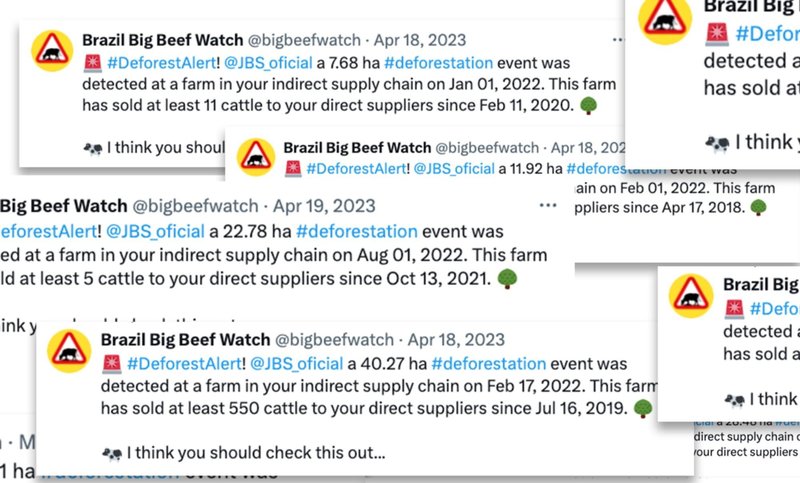
JBS’s response
When we took our findings to JBS, they told us that they were "unable to conduct a proper analysis of the farms mentioned, as it is impossible to identify to which of our direct suppliers these indirect producers may have supplied to."
They stated that "the opaque nature of the cattle supply chain in Brazil makes it challenging for food companies to have visibility beyond their direct suppliers" but that they have deployed "a blockchain-enabled transparency platform and enrolled thousands of producers."
The company also stated that they have "partnered with the State of Pará, industry organizations, and solutions-oriented NGOs to initiate a significant individual animal identification program in the Amazon."
Notes on methodology
These figures are for indirect suppliers only – farms that do not sell to JBS directly but instead sell to farms that sell directly to the company (“direct supplier”).
Deforestation events were only included if over 30% of the deforested area overlapped with a farm identified as selling to JBS’ suppliers.
The event also had to be over a hectare in size to be counted, and the company had to have been known to have sold cattle to JBS’ suppliers since 2018.
